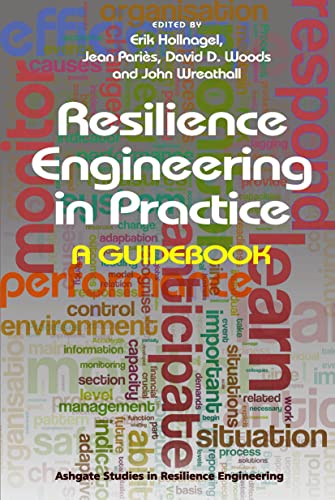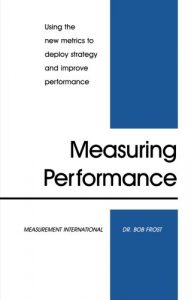In a world that constantly faces disruptions, whether from technology failures, natural disasters, or human errors, resilience engineering has emerged as a crucial field of study. It emphasizes the importance of systems that can withstand and recover from unforeseen challenges. Through the lens of resilience engineering, we can develop strategies that enhance the durability and adaptability of complex systems. The following selection of books showcases innovative concepts and practical insights that underline the imperative of building resilience in various domains, from healthcare to software engineering.
This collection not only offers a theoretical framework but also practical guidance on implementing resilience strategies across different industries. These books are essential for professionals who seek to deepen their understanding of resilience engineering and apply it effectively in their work. Let’s dive into these insightful reads that promise to empower and educate.
1. Resilience Engineering in Practice: A Guidebook
The masterpiece titled Resilience Engineering in Practice: A Guidebook is an essential read for anyone serious about embedding resilience into their organizational culture. This guidebook provides a meticulous exploration of the principles and practices of resilience engineering. Covering real-world applications, it distills complex ideas into actionable insights that can be embraced by practitioners across industries.
Authored by industry experts, this book not only underscores the theoretical foundations but also offers case studies that exemplify successful implementations of resilient systems. It’s an invaluable resource for engineers, managers, and decision-makers aiming to bolster their organizations against the unpredictability of today’s world. If you’re ready to elevate your understanding and application of resilience engineering, this guidebook is your go-to resource!
2. Resilience Engineering: Concepts and Precepts
Resilience Engineering: Concepts and Precepts delves deep into the foundational concepts that drive resilience in complex systems. This book outlines a comprehensive view of resilience engineering, guided by expert insights and research findings. It serves as an enlightening read for anyone looking to grasp the fundamental theories and apply them in practical settings.
Its focus on principles such as anticipation, learning, and adaptability makes this book a staple for those interested in how systems can evolve to withstand unexpected changes. The clarity and depth of information make it accessible for both novices and seasoned practitioners within the field.
3. Engineering Resilient Systems on AWS: Design, Build, and Test for Resilience
For those focusing on cloud engineering, Engineering Resilient Systems on AWS provides a detailed framework for building resilient systems on AWS. This book offers practical design principles that guide readers in creating systems that are robust against failures while also optimizing for performance. With hands-on examples, it demystifies the complexities around deploying resilient architectures in cloud environments.
This resource is not just theoretical; it is a practical guide that enables engineers to effectively design, build, and test resilient systems. If you’re operating in the AWS ecosystem, this book is a must-have to ensure your systems are equipped to handle the pressures of today’s digital landscape.
4. Resilience Engineering: Models and Analysis
Resilience Engineering: Models and Analysis invites readers to explore the different models used in the field of resilience engineering. This book not only presents theoretical models but also encourages critical thinking around how these models can be applied to analyze and enhance system resilience. It’s an insightful read for those who appreciate the mathematical and analytical side of resilience, offering a unique perspective that drives innovative solution development.
This book serves as an excellent resource for engineers, analysts, and anyone interested in harnessing data and models to bolster system performance and reliability in challenging contexts.
5. Resilience Engineering for Power and Communications Systems
Focusing on critical infrastructure, Resilience Engineering for Power and Communications Systems illuminates the intersection of networks and resilience strategies in times of crisis. This book tackles the challenges faced by power and communication systems during extreme events, providing a thorough understanding of the importance of resilience in these essential services. It pushes the reader to consider resilience not just as a theoretical concept but as a real-world necessity.
An invaluable guide for professionals working in utilities and communications, this book emphasizes practical strategies and frameworks that enhance the resilience of essential services against unpredictable events.
6. Security Chaos Engineering: Sustaining Resilience in Software and Systems
Security Chaos Engineering provides cutting-edge insights into building resilience in software systems through intentional experimentation. This book introduces pioneering concepts that merge resilience engineering with security practices, empowering software engineers and system architects to take proactive measures against potential threats. It presents a framework for developing robust systems that can endure chaotic conditions, making it essential reading for modern software development teams.
This innovative guide not only raises awareness about the importance of resilience but also provides practical tactics to integrate into daily workflows, ensuring systems remain reliable and secure under duress.
7. Becoming a Rockstar SRE: Electrify your site reliability engineering mindset to build reliable, resilient, and efficient systems
Becoming a Rockstar SRE targets Site Reliability Engineers and emphasizes the mindset shifts necessary to foster resilience in systems. This engaging read combines practical strategies with inspirational insights, ensuring that engineers not only understand the principles of resilient engineering but are also equipped to embrace them in their daily practices.
This book is perfect for anyone in the SRE field looking to enhance their approach to system resilience while embracing new methodologies that lead to efficient and reliable outcomes.











































